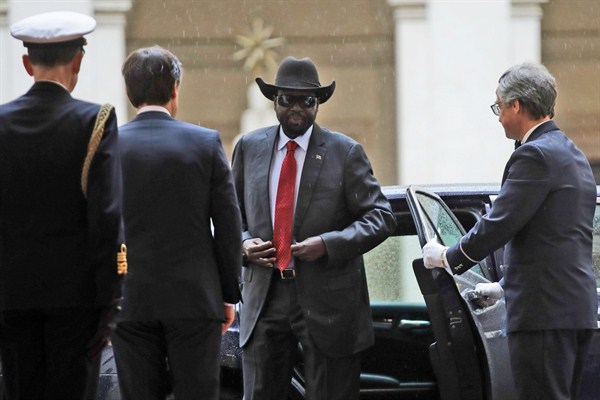Last September, South Sudan’s president, Salva Kiir, signed a power-sharing deal with rebel leader Riek Machar, promising to bring an end to the five-year civil war that has crippled the world’s newest country, which declared its independence from Sudan in 2011. It wasn’t the first time. A similar agreement signed in 2015 broke down the following year, leading to fighting that prompted Machar to flee the country.
Observers predicted the new agreement would share the fate of its predecessor. What was billed as a “revitalized” peace plan was still silent on many of the underlying drivers of violence and seemed in many ways to be a stale retread of a deal that had already failed to deliver on its promise.
One year later, the pessimists are mostly being proven right. A cease-fire has largely held, but it is a fragile peace. Key provisions of the agreement about demobilizing fighters and redrawing internal political lines remain unfulfilled. There are mounting fears that the deal’s eventual breakdown could lead to a return to large-scale violence in South Sudan. For now, the best prospect for the future involves a frustrating period of uncertainty defined merely by the absence of war, with only dim hopes for creating true political inclusion.

